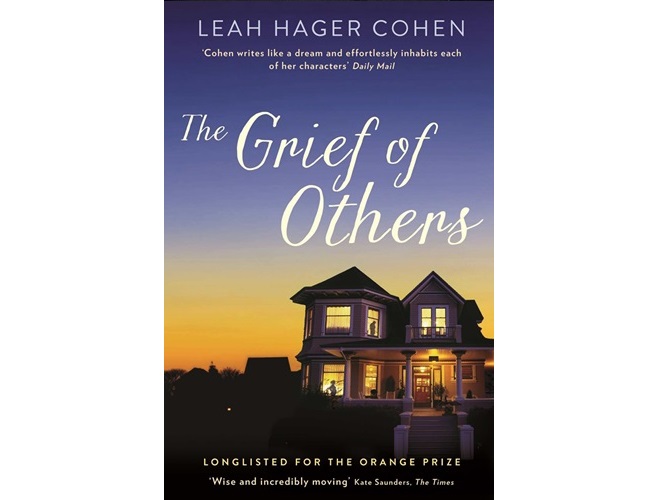The Grief of Others explores the many manifestations of grief—its ability to pull apart or bring together, to isolate, to confound. Grief is a tricky topic—it is intensely personal, and everyone experiences it differently—but Leah Hager Cohen delves into it with grace and courage, and the result is a beautiful, touching novel.
Many of the struggles facing the Ryries, the family at the center of The Grief of Others, are, in a way, mundane – job dissatisfaction, trust issues between spouses, a child’s behavioral problems. However, the event that opens the novel is anything but mundane: the death of a newborn just 57 hours after his birth.
What follows is a portrait of a family struggling to come to terms with their loss, each member processing their grief in their own unique, private way. The parents, John and Ricky, barely speak about it, continuing their lives as if nothing happened until Ricky reveals a secret that could end their marriage. Their children, Biscuit (10) and Paul (13), aware that their parents are unable to cope, begin to act out in strange ways. A secret emerges, threatening the family’s future; then an unexpected visitor arrives, pulling the family back from the brink.
The prologue is one of the most quietly devastating passages I’ve ever read, detailing a grieving mother’s attempt to make the most of what little time she has with her dying son. Ricky examines “the whorls of his ears,” the “specks of abalone” that are his toenails. She refuses to let anyone else hold him, staying awake so as to not miss a single breath he takes, “the one thing she wished could be saved.”
The Ryries are complex, fully realized characters; they feel like a real family. Cohen takes the time to develop the inner life of this family, and in doing so, makes you understand their motivations and experiences. You feel Ricky’s anguish as she holds her dying newborn – and that of her trusting husband, oblivious to the secret weighing on his wife.
That being said, that doesn’t mean you necessarily like these characters.
Though Cohen writes with compassion, she does not sugar coat the actions of her protagonists. They are flawed, complex people, making questionable decisions, acting selfishly, neglecting to consider the unintended consequences of their actions.
Despite the bleakness of the subject matter, The Grief of Others is not a depressing novel. Cohen peppers the story with tiny, touching moments and woven throughout is hope—that the Ryries can find their way back, together.
The chapters that flash back to eight years earlier disrupt the momentum of the story. I understand why Cohen wanted to include the Ryries’ back-story, but these chapters are written in a different narrative mode than the rest of the novel, which I found a bit jarring. And even as you empathize and understand these characters, Cohen keeps you at a certain distance, thus mitigating, at least a bit, the emotional impact. Whether that is a blessing or a curse is up to you.
Recommendation: Read it!
